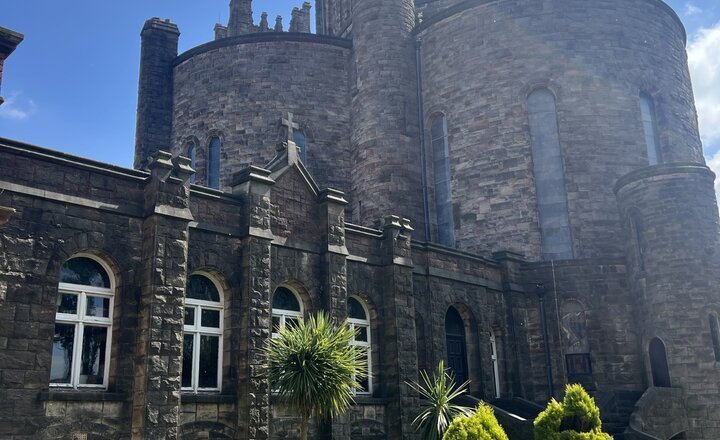Catholic Schools Inspectorate Report
Religious Education
The Religious Education (RE) curriculum at Holy Family Catholic High School is a thoughtfully crafted program, deeply anchored in Gospel Values and the Catholic faith. It seeks to holistically develop students spiritually, morally, and intellectually, while instilling key values that guide their lives. Here's a closer look at the foundational principles of this curriculum:
Core Pillars of the RE Curriculum
Love
The curriculum prioritizes fostering a deep understanding and practice of love within the school community. Students explore the profound love of God as revealed in the Bible and through the life of Jesus Christ. Through lessons on parables like the Good Samaritan, students are encouraged to reflect on and emulate God’s unconditional love by showing compassion and kindness toward others.
Respect
Respect underpins every aspect of the curriculum. Lessons emphasize the intrinsic dignity of all people, as taught by the Catholic Church, and encourage students to practice empathy and understanding. By studying the sacraments and their significance, such as the Eucharist, students are also guided to show reverence for God and sacred traditions, fostering a sense of respect for both the divine and the diversity of human experiences.
Service
Inspired by Jesus’ teachings and example, the curriculum highlights the importance of serving others. Students engage in service projects and discussions on ethical dilemmas, applying their faith to real-world contexts. This hands-on approach helps them understand the transformative power of service and encourages them to contribute positively to their communities.
Ambition
The RE program instils ambition by encouraging students to strive for excellence, both personally and spiritually. It challenges them to develop their talents and use them for the greater good, emphasizing that ambition aligned with Catholic values is not only about achieving personal success but also about serving God and humanity.
Delivered by Specialists
At Holy Family Catholic High School, Religious Education is delivered entirely by dedicated subject specialists. This ensures that students receive high-quality instruction rooted in deep theological understanding and pedagogical expertise. The subject specialists are passionate about their field and are committed to providing a meaningful and enriching educational experience.
Development Across Years
From Year 7 through Year 13, the RE curriculum evolves to deepen students’ understanding of their Catholic faith. It fosters a personal relationship with God and equips students with the critical thinking skills and moral foundation necessary to navigate complex societal issues. The program aims to prepare students to be compassionate, ethical, and active participants in society.
Guided by Gospel Values
The RE curriculum at Holy Family Catholic High School not only nurtures faith but also promotes a lifelong commitment to Gospel Values. By combining spiritual growth with intellectual inquiry, the program empowers students to live authentically as followers of Christ, contributing to a world that values love, respect, service, and ambition.
For further information see our RE Curriculum pages
Prayer and Liturgy
Our School Prayer
Heavenly Father,
Inspired by the Holy Spirit, we gather as the Holy Family community.
You gave us Jesus, Mary, and Joseph, who listened to Your call and answered willingly, showing us how to love each other unconditionally.
May we follow their example and encourage one another in all that we do with kindness and compassion, always striving to be the best we can be.
Bless our school, our staff, our pupils, and our families. May we grow in faith, hope, and love, together as one Holy Family.
Amen
Prayer and Liturgy
At Holy Family Catholic High School, Christ is at the heart of every decision we make. As we aim to develop the whole person, we believe that Prayer and Liturgy play an integral role in this mission. As a cornerstone of school life, our Prayer and Liturgy practices are rooted in Catholic tradition and Gospel values, reflecting our school ethos every day.
Daily Prayer and Liturgy take place each morning during form time, with form teachers leading their groups in prayer using quality resources provided by our RE team. In addition to this daily practice, all students have weekly opportunities to participate in whole year-group Prayer and Liturgy assemblies.
These moments of prayer offer both students and staff time for reflection, silence, and connection with Christ. Beginning our day in this way sets the tone for learning and encourages everyone to be the best they can be.
Pupils and staff at HFCHS have access to a wide range of Prayer and Liturgy opportunities, including:
- Year 7 Welcome Mass
- Advent Liturgies
- Lenten Liturgies
- Daily Form Prayer and Liturgy
- Weekly Assemblies
- Walk of Faith and Christmas celebration at St Mary's Church
- End-of-term and end-of-year celebrations
- Year 11 and Year 13 Leavers’ Mass
See our HFCHS Prayer & Liturgy policy
Catholic Life and Mission
Our Mission Statement ‘to be the best that you can be’ is not simply a mantra that is repeated by children and staff or something that is just displayed around our school. The staff, children, parents and Governors work hard to ensure that everyone within our school community is able to achieve personal excellence so that our Mission Statement is lived out daily.
As a Catholic school it is imperative that we strive for excellence for ourselves, the children and colleagues. It ensures that we recognise the uniqueness of the individual, made in God's image and loved by him. The search for excellence is also an integral part of the spiritual life of the school.
We know that children and staff will only achieve personal excellence in an environment where they feel valued and loved, part of our school family. Everyone in our school has a responsibility to ensure that the Gospel values are evident in our school in all the interactions that take place and that they underpin all the policies in place. We believe we are a school family as our name suggests.
As a Catholic school we recognise that the children in our school are unique, made in the image of God. We have the highest standards for each other and hope to create a safe and nurturing environment, we know that we can challenge one another and the children so that we can all be our very best. It is in this way that we hope the Holy Family School community can give glory to God.
Catholic Social Teaching
|
At Holy Family Catholic High School we believe that our Catholic nature of the school should flow through each and every aspect of our school life. Therefore Catholic Social Teaching and the importance of our faith features in all our curriculum areas. Here are some examples of the fantastic work carried out across our school in the different curriculum areas. Each one provides an ideal opportunity to refer to CST and allow the pupils to discover how the Catholic Church tries to tackle the injustices and make the world a fairer more equal and just world. Catholic social teaching at Holy Family is rooted in Scripture, formed by the wisdom of Church leaders, and influenced by grassroots movements. It is our moral compass, guiding us on how to live out our faith in the world. Our faith calls us to love God and to love our neighbours in every situation, especially our sisters and brothers living in poverty. Following in the footsteps of Christ, we hope to make present in our unjust and broken world, the justice, love and peace of God. Modern Catholic social teaching is said to have originated in 1891 with the encyclical letter, Rerum Novarum. Since then, a wealth of teaching continues to give new life to the Scriptures and shape the Church’s response to our modern world. From these Catholic social teaching documents and encyclicals we derive our core principles. |
 |
We believe very human person is made in the image and likeness of God. This is a gift that we all share as fellow human beings; we are all infinitely loved by our Creator. God is present in every human person, regardless of religion, culture, nationality, orientation, or economic standing. Each one of us is unique and beautiful. We are called to treat every person and every creature with loving respect.
Examples in school include: RE lessons around Abortion, euthanasia and sanctity of life, in PD lessons: Relationships, consent, challenging prejudice and discrimination, making appropriate health choices, managing mental health and seeking support, core values and emotions.
“Before I formed you in the womb, I knew you.” Jeremiah 1:5
Solidarity arises when we remember that we belong to each other. We reflect on this in a special way at Mass. The Catechism of the Catholic Church states, “The Eucharist commits us to the poor. To receive in truth the Body and Blood of Christ given up for us, we must recognise Christ in the poorest.”
Examples in school include: Collection for Ukraine, Sleep-over to raise money for Orphan Hope (India), Foodbank collections, in PD lessons: Managing influences on our behaviour, positive and negative role models, protected characteristics, British Values, promoting positive social norms and attitudes.
“In truth I tell you, in so far as you did this to one of the least of these brothers [or sisters] of mine, you did it to me.” Matthew 25:40
The common good means that the fruits of the earth belong to everyone. No one should be excluded from the gifts of creation. Pope Paul VI spoke about this 50 years ago in his encyclical Populorum Progressio.
Examples in school include: our school mission statement, protecting the vulnerable and ensuring no one is left out or excluded, in PD lessons: Knowing how and where to access support when needed. Promoting inclusion and diversity.
“You are not making a gift of your possessions to the poor person. You are handing over to them what is theirs.” Saint Ambrose (340-397 AD)
The option for the poor reminds us of God’s preferential love for the poorest and most vulnerable people. God’s love is universal; he does not side with oppressors but loves the humble.
This principle is believed to have originated from the Liberation Theology movement in Latin America. For the first time, people living in poverty in the slums were holding the Bible in their own hands and imagining a world free from injustice. This radical thinking shaped CAFOD’s early work in the 1960s.
More recently, some Catholic theologians have spoken about an ‘option for the earth’. Pope Francis writes, “the earth herself, burdened and laid waste, is among the most abandoned and maltreated of our poor” Laudato Si’ #2.
Examples in school include: cake sales and charity work, in PD lessons: Living in a diverse society, positive relationships at home, reducing homelessness, managing relationship breakdown. Management of money and dealing with external influences e.g. loan sharks, money mules.
“The spirit of the Lord is on me, for he has anointed me to bring the good news to the afflicted. He has sent me… to let the oppressed go free.” Luke 4:18
Peace is a cornerstone of our faith. Christ, the Prince of Peace, sacrificed himself with love on the cross.
In 1963, Pope John XXIII published Pacem in Terris (Peace on earth). It was a dangerous time for humanity; with the rise of nuclear weapons, the frightening stand-off between the US and the Soviet Union over the Cuban Missile Crisis, and the building of the Berlin Wall. The Pope's letter urged the world to seek peace.
Examples in school include: Remembrance Day, Holocaust Memorial Day, Working closely with families, in PD lessons: Identifying and responding to hate crime, managing healthy and unhealthy relationships, stress management strategies, consent, impact of substance abuse on behaviour.
“Peace… is an order that is founded in truth, nurtured and animated by charity, and brought into effect under the auspices of freedom.” Pacem in Terris, 1963, #167
The dignity of work has been a key principle of Catholic social teaching from the very beginning.
In 1891, Pope Leo XIII issued Rerum Novarum (On Capital and Labour). He shone a light on the injustice and exploitation of workers by the rich during the Industrial Revolution. He advocated for workers to join forces and fight against inhuman conditions.
Since then, Church teaching has upheld the dignity of work and participation. The human person should always come before the pursuit of profit. Workers have the right to join trade unions, to a just wage, to spend time with their families and to rest. Work is an essential part of our human dignity and everyone has the right to participate.
Examples in school include: In PD lessons: Career pathways, types of employment, rights and responsibilities, work-life balance, opportunities in a global economy, professional conduct, media and digital literacy.
“A small number of very rich men have been able to lay upon the teeming masses of the laboring poor a yoke little better than that of slavery itself.” Rerum Novarum, 1891, #3
In the first pages of the Bible we read how God created the sun and the stars, the water and earth, and every creature. We believe Christ is the redeemer of all creation.
In 2015, Pope Francis brought together decades of Church teaching in the encyclical, Laudato Si’. In this deeply influential letter, Pope Francis invites everyone on the planet to consider how our actions are affecting the earth and the poorest people. Everything is interconnected, and all of creation praises God. It is our Christian vocation to care for creation.
Examples in school include: Geography climate change workshops, litter picking at Crosby beach, in PD lessons: Promoting a healthy self-concept, stress management techniques to visualise our world and connect with nature.
“Who turned the wonderworld of the seas into underwater cemeteries bereft of colour and life?” Catholic Bishops of the Philippines, 1988
We believe very human person is made in the image and likeness of God. This is a gift that we all share as fellow human beings; we are all infinitely loved by our Creator. God is present in every human person, regardless of religion, culture, nationality, orientation, or economic standing. Each one of us is unique and beautiful. We are called to treat every person and every creature with loving respect.
Examples in school include: RE lessons around Abortion, euthanasia and sanctity of life, in PD lessons: Relationships, consent, challenging prejudice and discrimination, making appropriate health choices, managing mental health and seeking support, core values and emotions.
“Before I formed you in the womb, I knew you.” Jeremiah 1:5
Solidarity arises when we remember that we belong to each other. We reflect on this in a special way at Mass. The Catechism of the Catholic Church states, “The Eucharist commits us to the poor. To receive in truth the Body and Blood of Christ given up for us, we must recognise Christ in the poorest.”
Examples in school include: Collection for Ukraine, Sleep-over to raise money for Orphan Hope (India), Foodbank collections, in PD lessons: Managing influences on our behaviour, positive and negative role models, protected characteristics, British Values, promoting positive social norms and attitudes.
“In truth I tell you, in so far as you did this to one of the least of these brothers [or sisters] of mine, you did it to me.” Matthew 25:40
The common good means that the fruits of the earth belong to everyone. No one should be excluded from the gifts of creation. Pope Paul VI spoke about this 50 years ago in his encyclical Populorum Progressio.
Examples in school include: our school mission statement, protecting the vulnerable and ensuring no one is left out or excluded, in PD lessons: Knowing how and where to access support when needed. Promoting inclusion and diversity.
“You are not making a gift of your possessions to the poor person. You are handing over to them what is theirs.” Saint Ambrose (340-397 AD)
The option for the poor reminds us of God’s preferential love for the poorest and most vulnerable people. God’s love is universal; he does not side with oppressors but loves the humble.
This principle is believed to have originated from the Liberation Theology movement in Latin America. For the first time, people living in poverty in the slums were holding the Bible in their own hands and imagining a world free from injustice. This radical thinking shaped CAFOD’s early work in the 1960s.
More recently, some Catholic theologians have spoken about an ‘option for the earth’. Pope Francis writes, “the earth herself, burdened and laid waste, is among the most abandoned and maltreated of our poor” Laudato Si’ #2.
Examples in school include: cake sales and charity work, in PD lessons: Living in a diverse society, positive relationships at home, reducing homelessness, managing relationship breakdown. Management of money and dealing with external influences e.g. loan sharks, money mules.
“The spirit of the Lord is on me, for he has anointed me to bring the good news to the afflicted. He has sent me… to let the oppressed go free.” Luke 4:18
Peace is a cornerstone of our faith. Christ, the Prince of Peace, sacrificed himself with love on the cross.
In 1963, Pope John XXIII published Pacem in Terris (Peace on earth). It was a dangerous time for humanity; with the rise of nuclear weapons, the frightening stand-off between the US and the Soviet Union over the Cuban Missile Crisis, and the building of the Berlin Wall. The Pope's letter urged the world to seek peace.
Examples in school include: Remembrance Day, Holocaust Memorial Day, Working closely with families, in PD lessons: Identifying and responding to hate crime, managing healthy and unhealthy relationships, stress management strategies, consent, impact of substance abuse on behaviour.
“Peace… is an order that is founded in truth, nurtured and animated by charity, and brought into effect under the auspices of freedom.” Pacem in Terris, 1963, #167
The dignity of work has been a key principle of Catholic social teaching from the very beginning.
In 1891, Pope Leo XIII issued Rerum Novarum (On Capital and Labour). He shone a light on the injustice and exploitation of workers by the rich during the Industrial Revolution. He advocated for workers to join forces and fight against inhuman conditions.
Since then, Church teaching has upheld the dignity of work and participation. The human person should always come before the pursuit of profit. Workers have the right to join trade unions, to a just wage, to spend time with their families and to rest. Work is an essential part of our human dignity and everyone has the right to participate.
Examples in school include: In PD lessons: Career pathways, types of employment, rights and responsibilities, work-life balance, opportunities in a global economy, professional conduct, media and digital literacy.
“A small number of very rich men have been able to lay upon the teeming masses of the laboring poor a yoke little better than that of slavery itself.” Rerum Novarum, 1891, #3
In the first pages of the Bible we read how God created the sun and the stars, the water and earth, and every creature. We believe Christ is the redeemer of all creation.
In 2015, Pope Francis brought together decades of Church teaching in the encyclical, Laudato Si’. In this deeply influential letter, Pope Francis invites everyone on the planet to consider how our actions are affecting the earth and the poorest people. Everything is interconnected, and all of creation praises God. It is our Christian vocation to care for creation.
Examples in school include: Geography climate change workshops, litter picking at Crosby beach, in PD lessons: Promoting a healthy self-concept, stress management techniques to visualise our world and connect with nature.
“Who turned the wonderworld of the seas into underwater cemeteries bereft of colour and life?” Catholic Bishops of the Philippines, 1988
PERSONAL DEVELOPMENT AND CATHOLIC SOCIAL TEACHING
At Holy Family, our Personal Development programme directly links to all aspects of the principles of Catholic Social Teaching (CST). This can be thought of as our moral compass, guiding us on how to live out our faith in the world. It is based around the Church’s belief that we can all make a difference in making our world a better place for all.
These teachings are rooted in Scripture and especially in the teachings of Jesus found in the Gospels. Christ shows us how to walk in his footsteps, bringing love and care to those both near and far. It is our vocation to live as did Jesus and saints throughout the ages, therefore making sure our world is better for everyone.
Together, our PD programme and Catholic Social Teaching aim to help pupils develop into well-rounded individuals, aware of their responsibilities to themselves and others.
At the end of lessons, pupils are encouraged to write a personal reflection that links their learning during the lesson to the relevant principle of CST and how this can have an impact on their lives.
Walk of Faith
At Holy Family Catholic High School, the Walk of Faith is a cherished termly tradition that encourages our students to deepen their spiritual connection and strengthen bonds with their peers and staff. This unique experience blends reflection, faith, and community in a meaningful journey through nature and prayer.
The Walk
The Walk of Faith begins with students, staff, and friends embarking on a serene walk through the picturesque woodland paths surrounding our school. These paths provide a peaceful setting, allowing participants to step away from their busy routines and take time to reflect on their personal faith and life.
This journey offers an opportunity for quiet introspection, companionship, and a chance to appreciate the beauty of God's creation. Along the way, participants are guided by themes of hope, gratitude, and unity, which are woven into the reflections.
The Service
The walk culminates with a special service at St Mary’s Catholic Church in Little Crosby, a short distance from our school. The service includes prayer, hymns, and reflections led by members of our school community and clergy, reinforcing the values of faith, family, and community.
About St Mary’s Catholic Church
St Mary’s Catholic Church in Little Crosby holds a significant place in the spiritual and historical fabric of the area. Built in 1845, this beautiful Gothic Revival church was designed by the renowned architect Augustus Welby Northmore Pugin, famous for his work on the Houses of Parliament in London.
Little Crosby itself is celebrated as one of England's oldest Catholic villages, with a history of continuous Catholic worship dating back to the Reformation. St Mary’s remains a symbol of resilience and devotion, providing a sacred space for worship and reflection.
Inside, visitors are met with stunning stained-glass windows and a warm, welcoming atmosphere. The church stands as a testament to the enduring faith of the local Catholic community and serves as a perfect destination for the reflective and spiritual aspects of our Walk of Faith.
A Tradition of Faith and Fellowship
The Walk of Faith is more than just a journey; it is a moment to connect with God, nature, and one another. By fostering a sense of unity and encouraging reflection, this tradition strengthens the spiritual foundation of our school community.
We invite all students and staff to participate, embracing the opportunity to walk together in faith, share in God’s love, and celebrate our shared journey as members of Holy Family Catholic High School.
Links
CAFOD https://cafod.org.uk/
CARITAS https://www.caritas.org/
Feeding Liverpool https://www.feedingliverpool.org/
The Liverpool Catholic Archdiocese https://www.liverpoolcatholic.org.uk/
The Catholic Church of England and Wales https://www.cbcew.org.uk/
Our Parishes:
https://www.liverpoolcatholic.org.uk/directory/places
English Martyrs'; Holy Family, Ince Blundell;
Our Lady of Compassion, Formby;
Our Lady of Victories, Hightown;
Our Lady Queen of Peace; St Benet’s;
St Jerome's, Formby;
St Mary's, Little Crosby
St William of York, Thornton.
 |
Related News
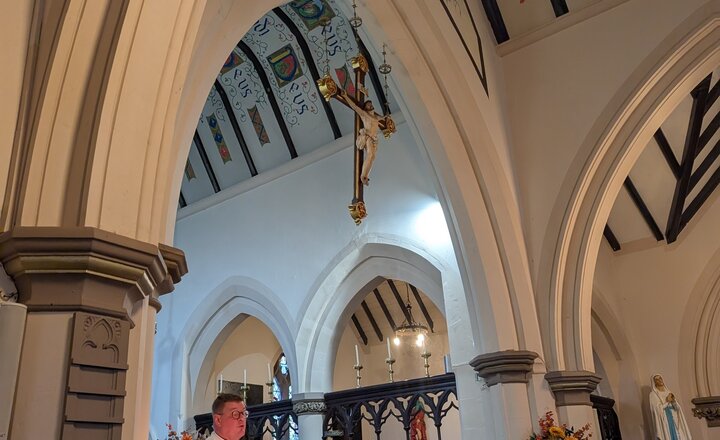
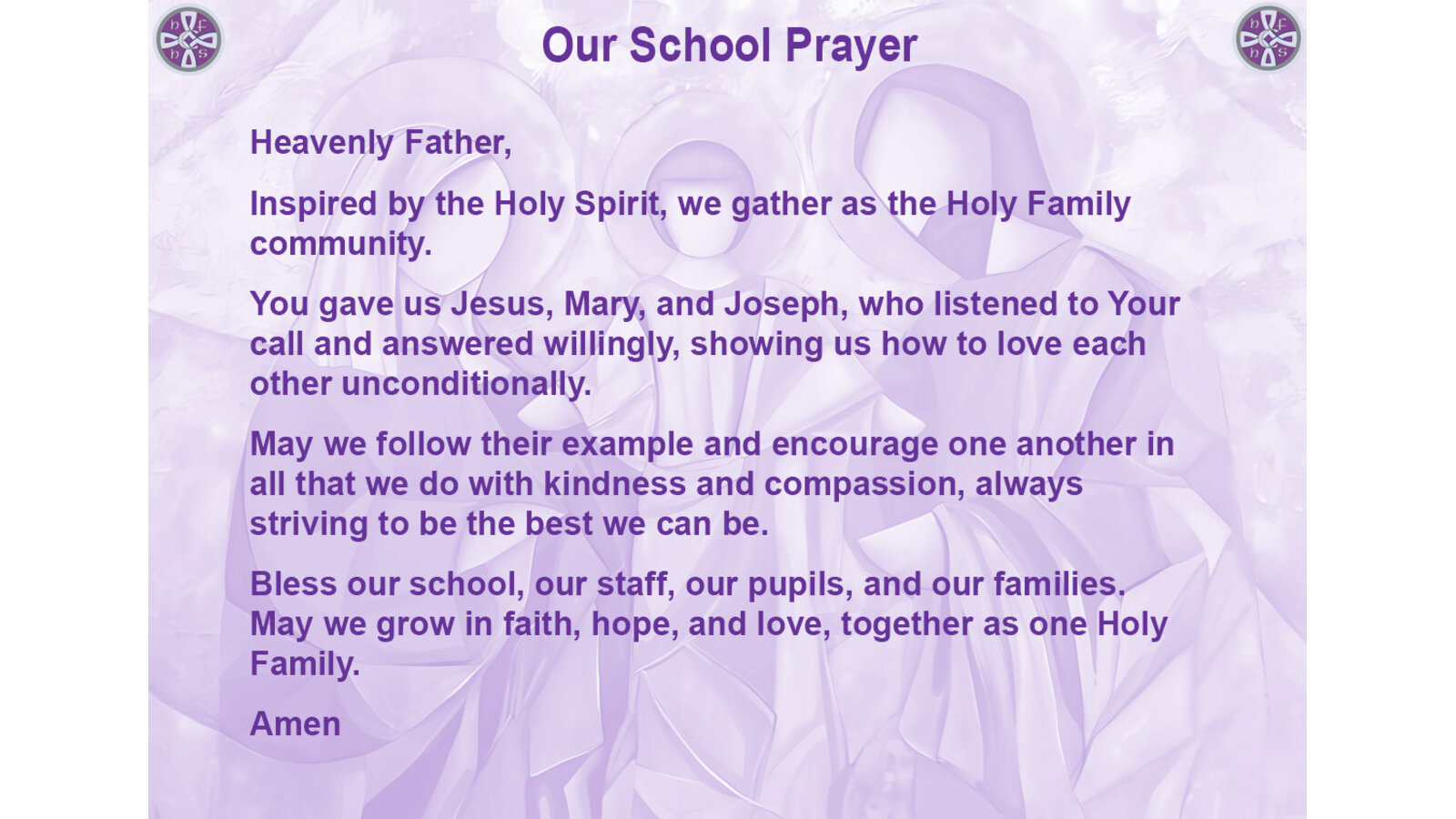
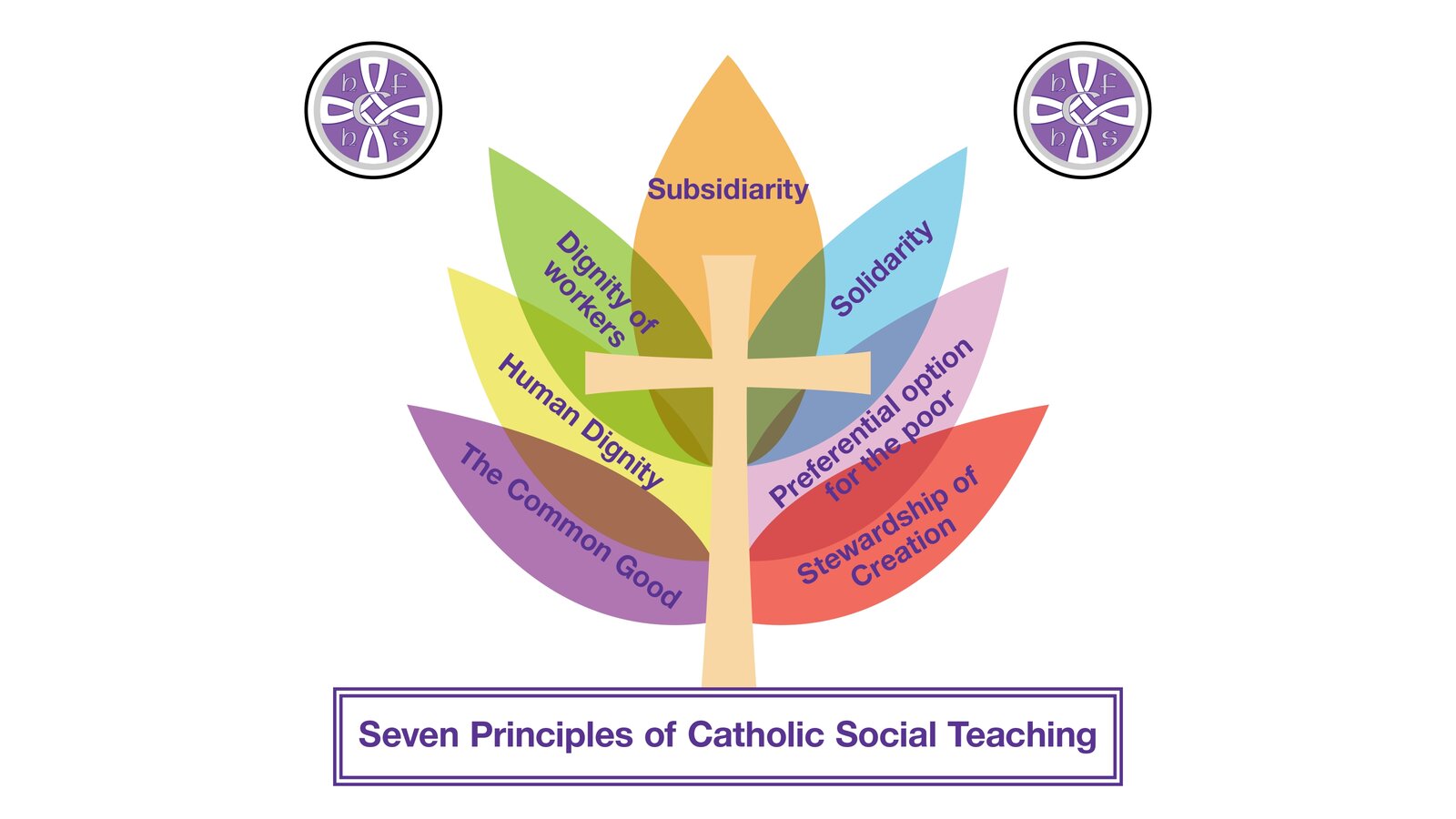
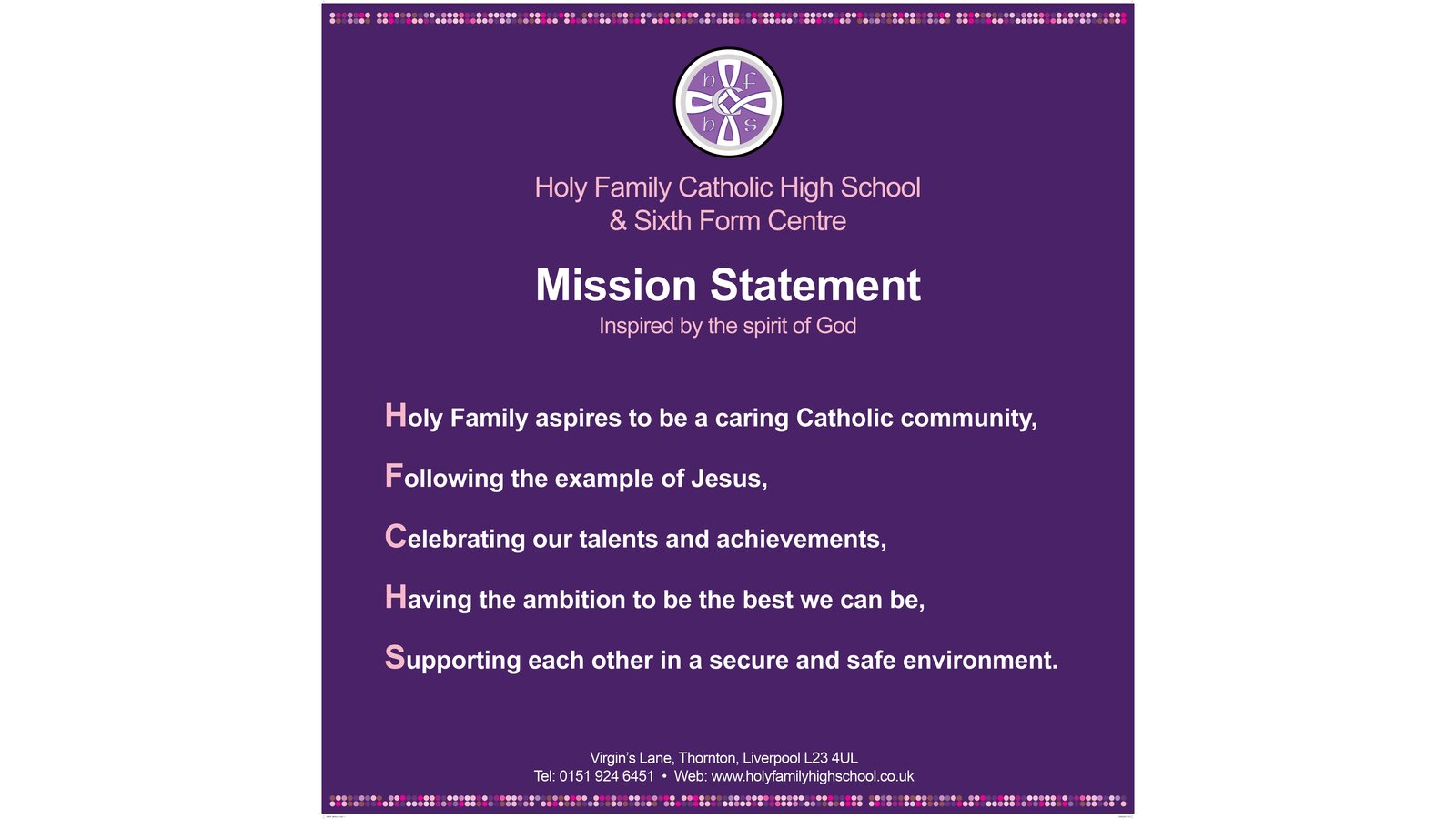
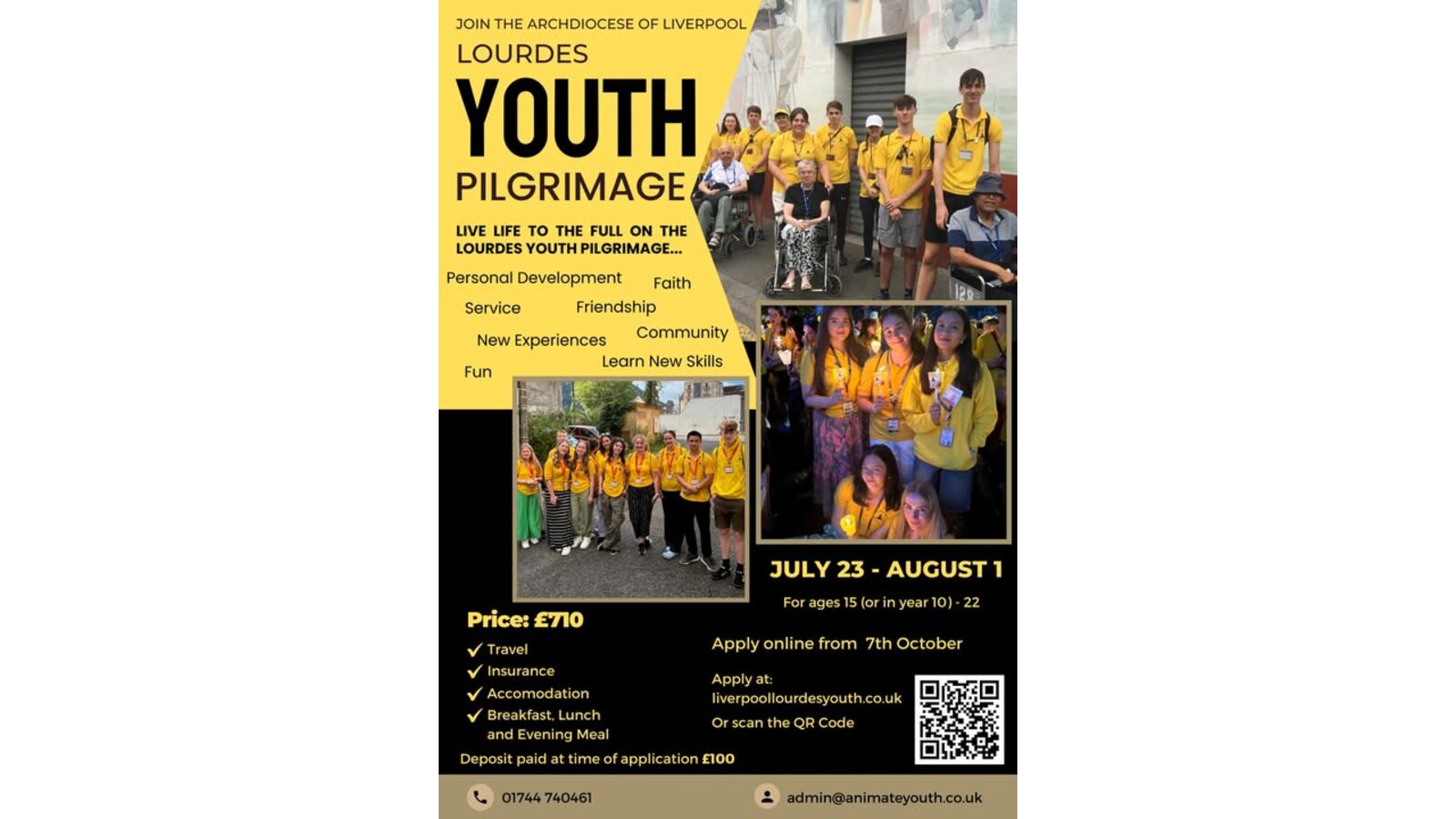

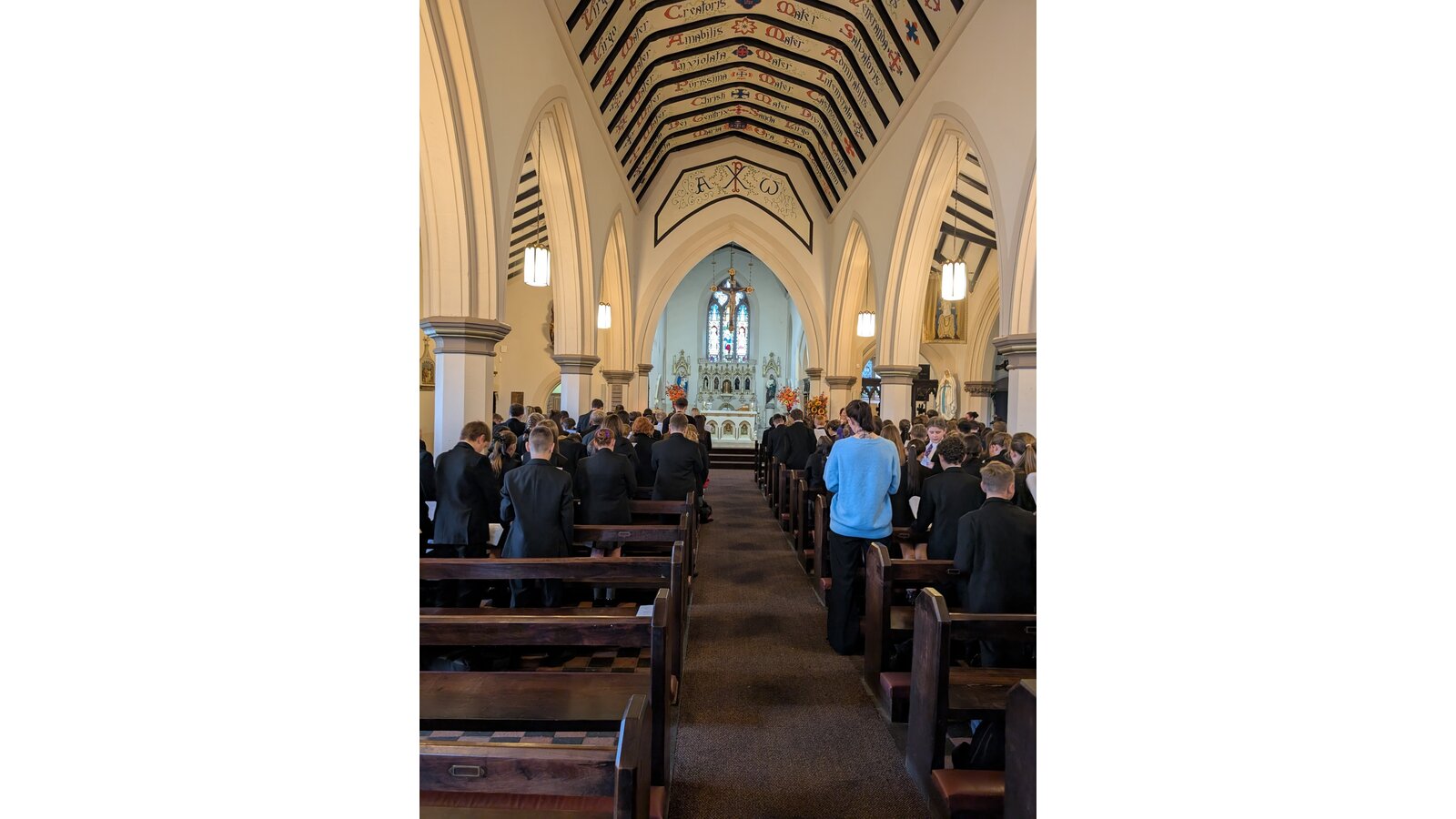
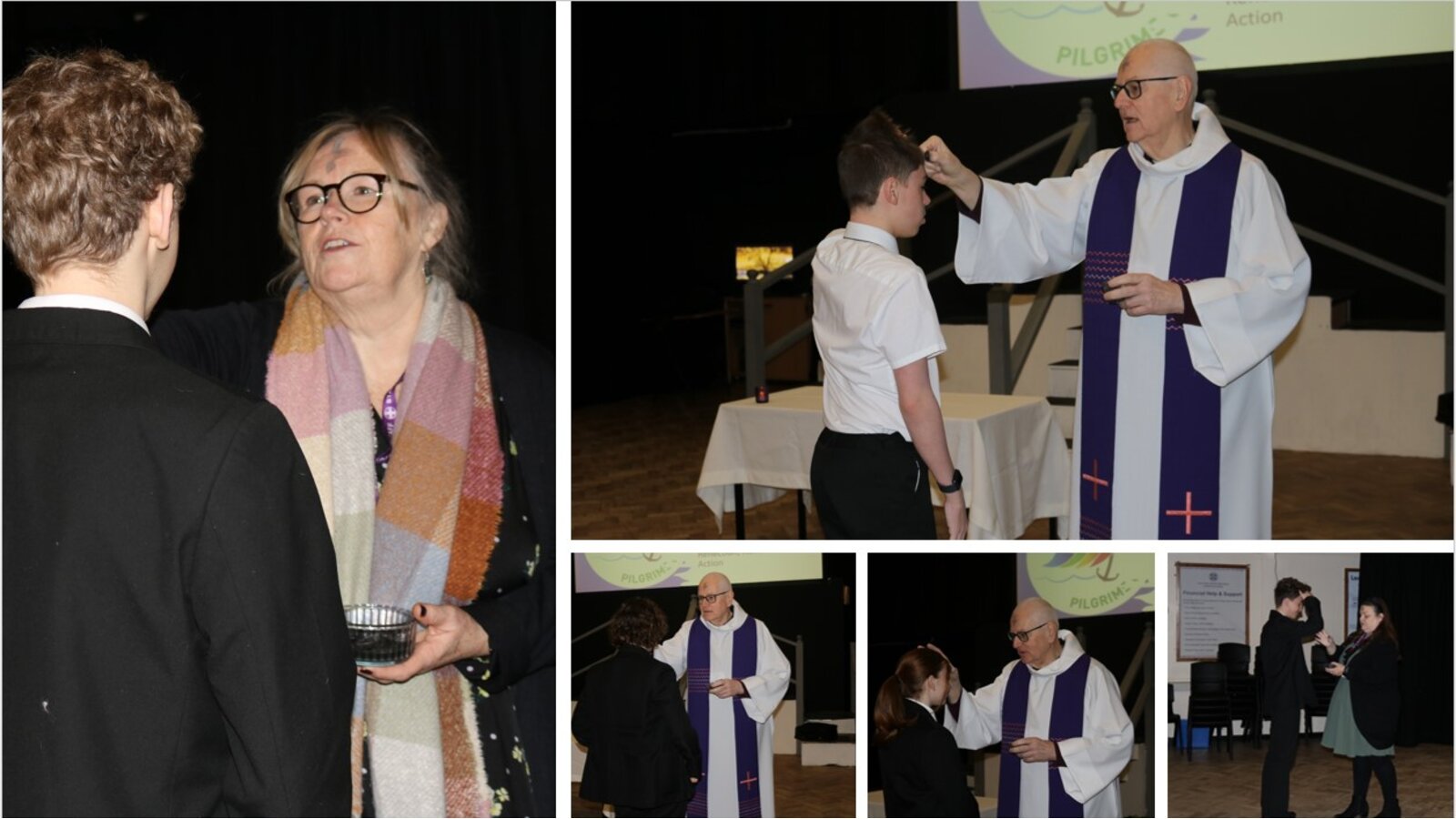
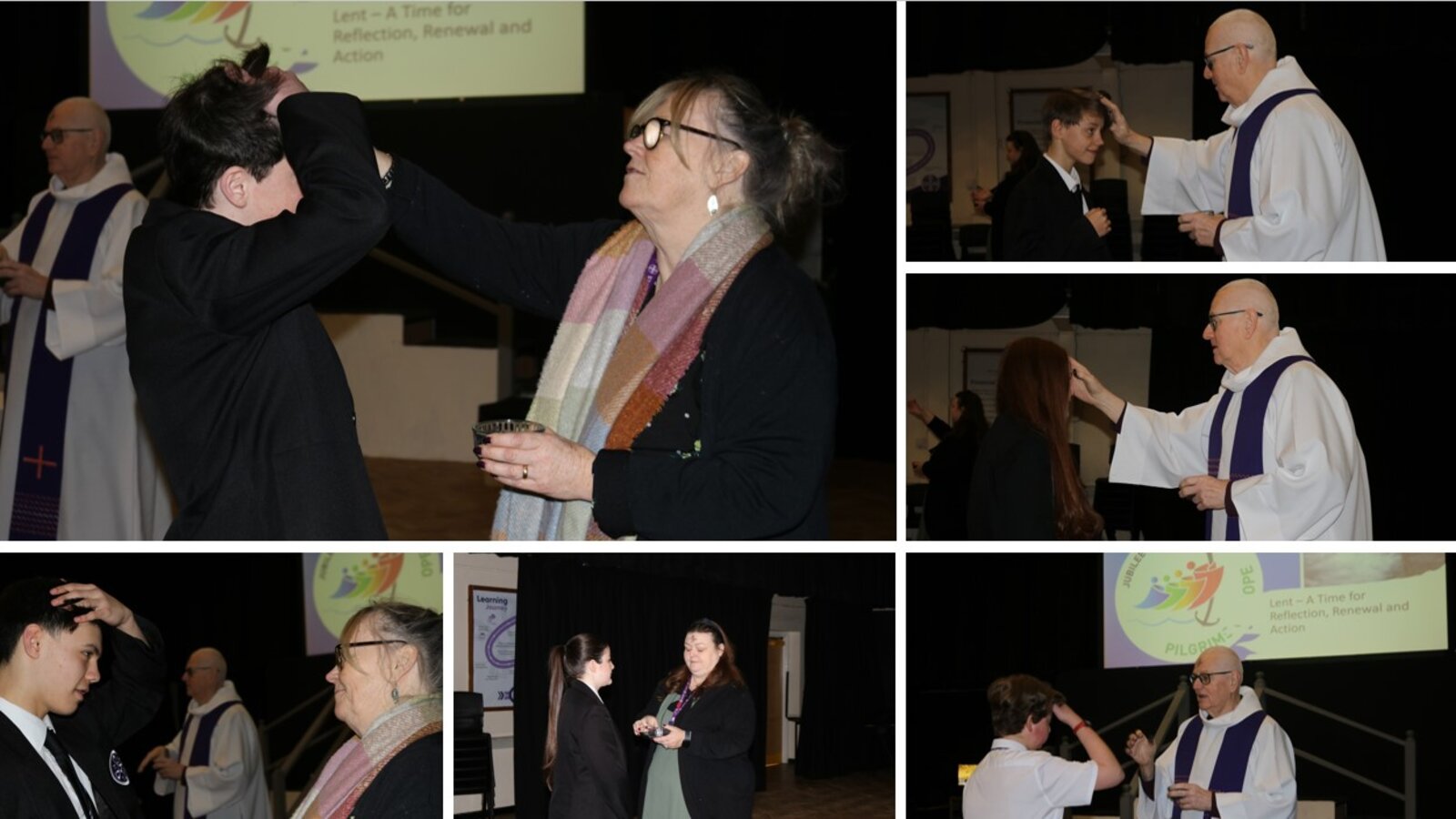
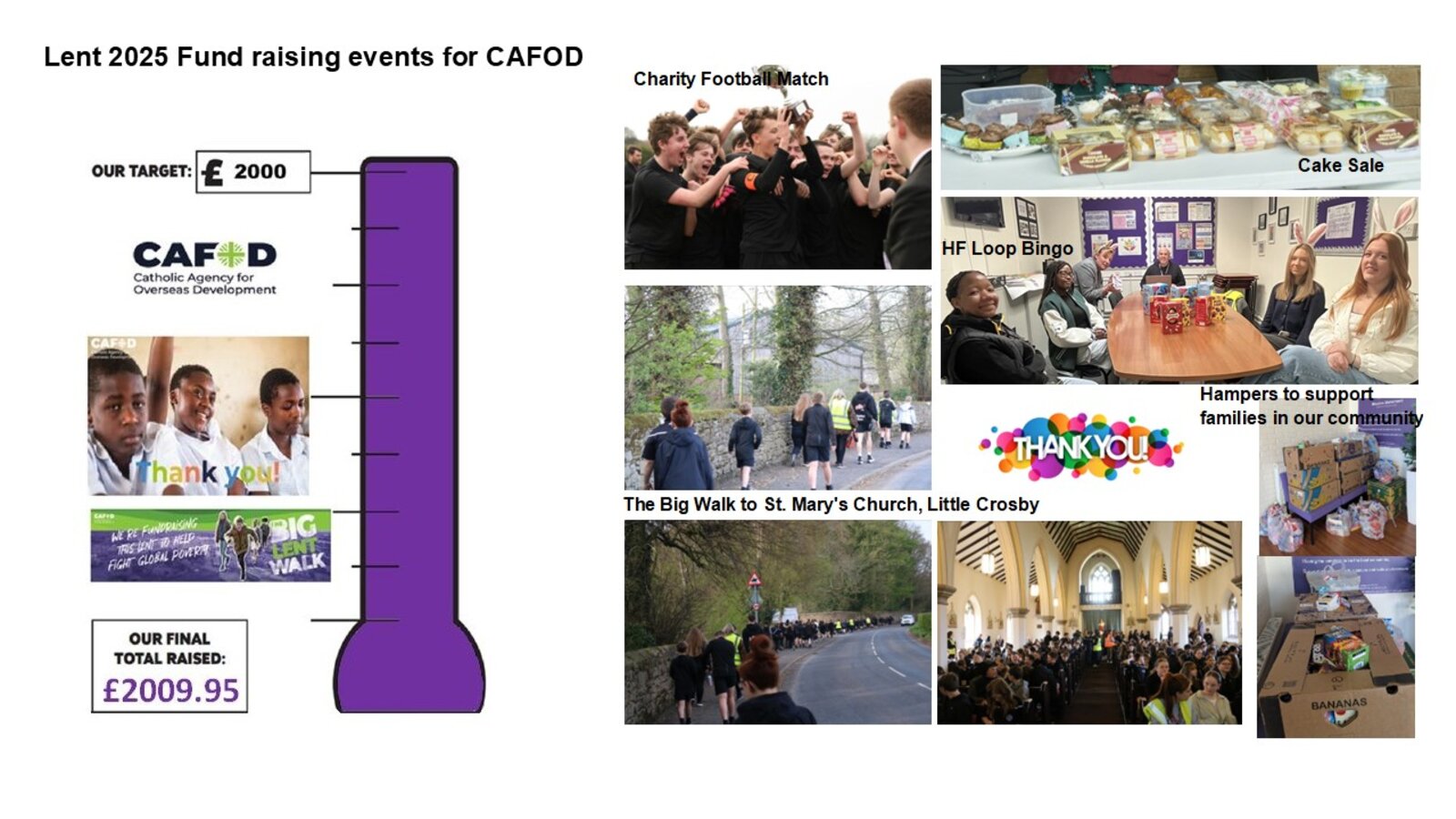
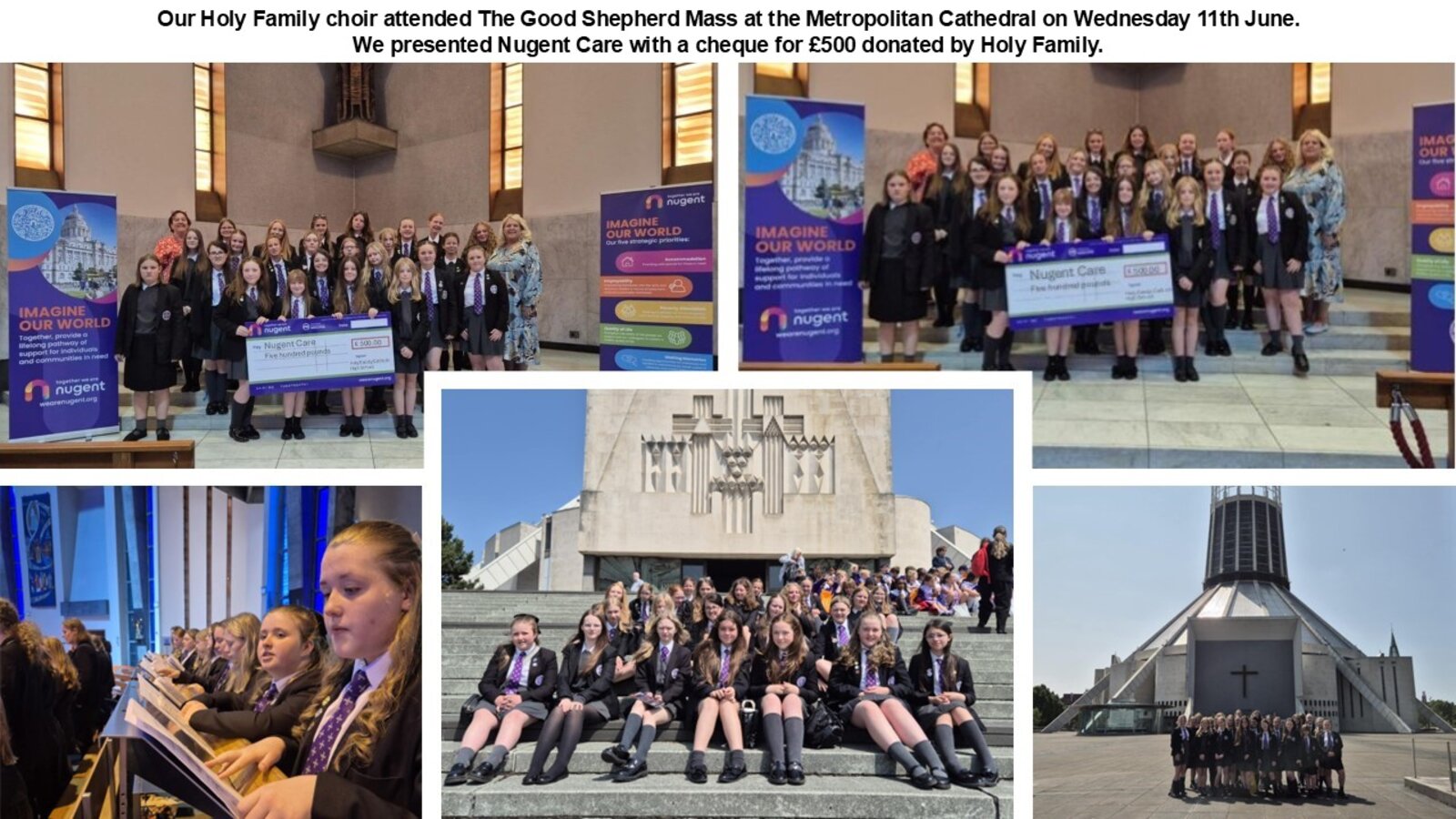
.jpg)
.jpg)
.jpg)
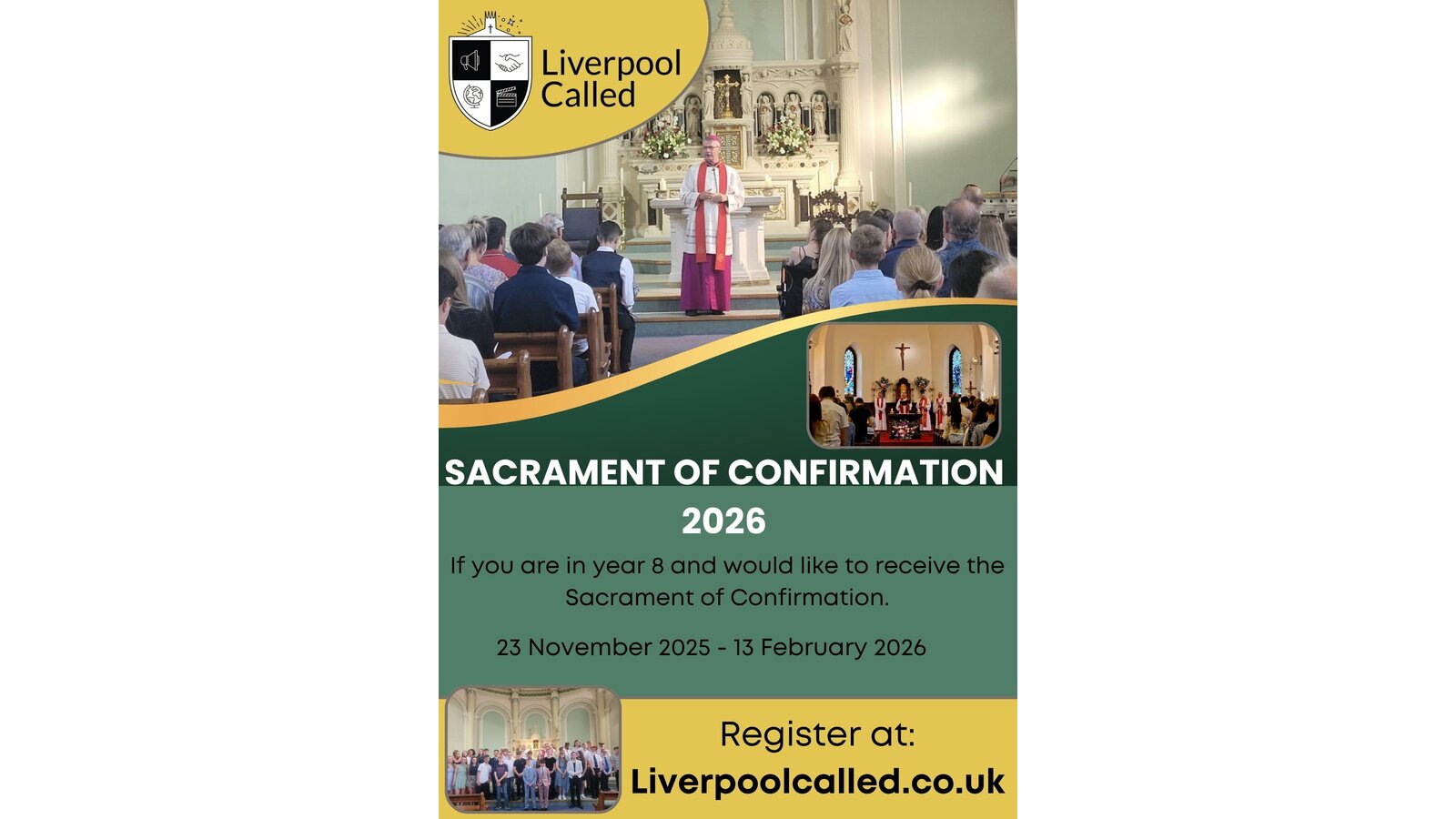
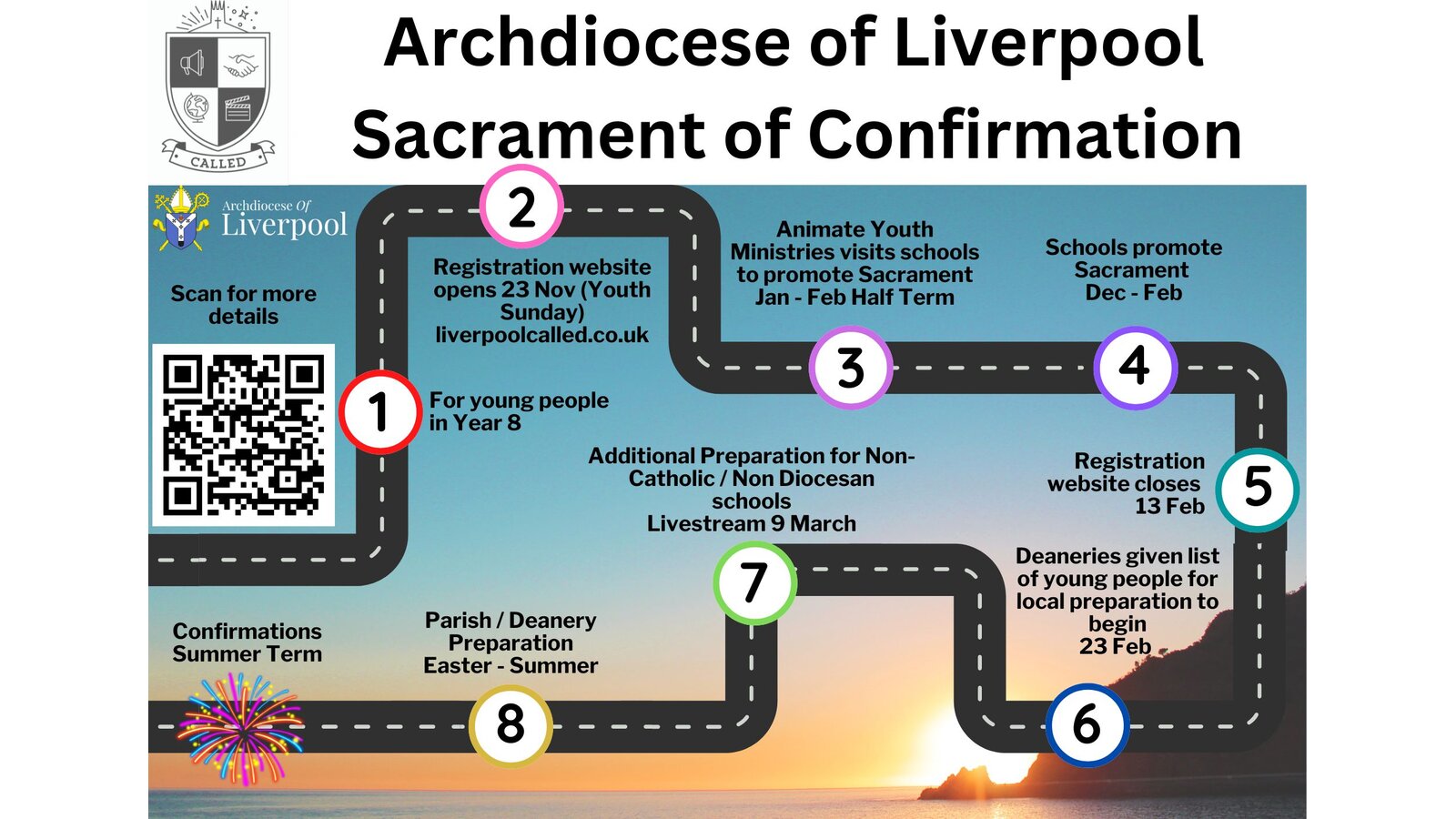
.jpg)
